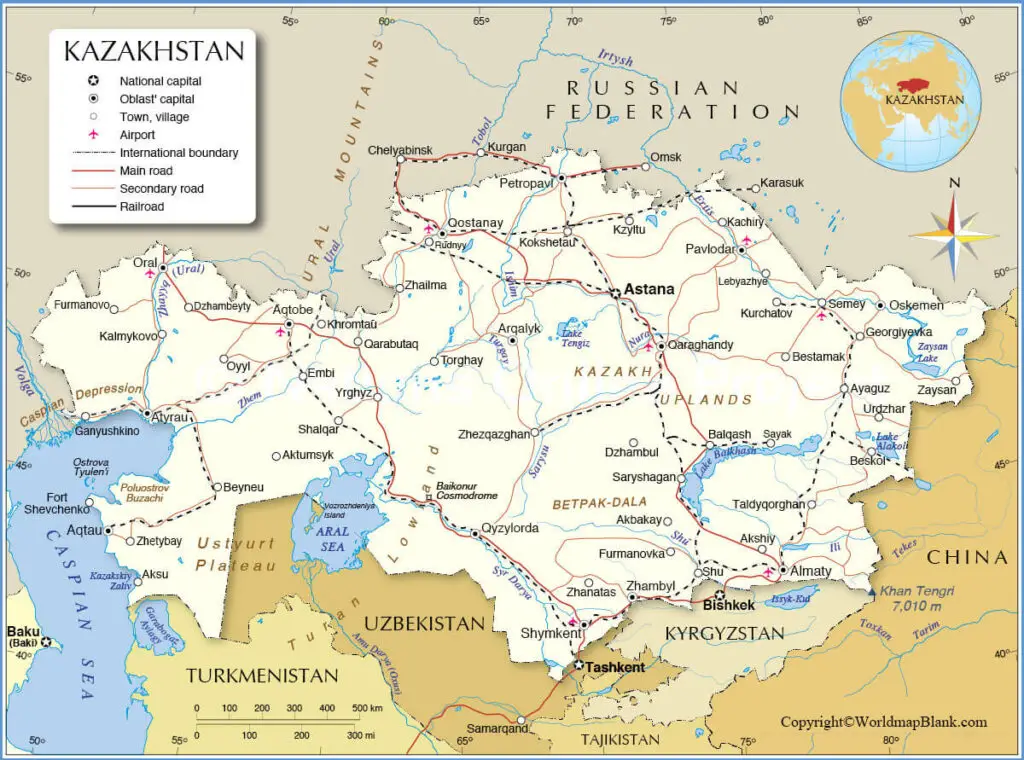Climate and Geography
Astana and Almaty have distinct climates and landscapes due to their differing locations within Kazakhstan.
Astana on the Plain
Astana sits on a flat plain, leading to bitterly cold and windy winters. However, these winds provide welcome relief during the hot summers. Being located away from major geographical features means Astana has more room to develop infrastructure and expand.

Almaty in the Mountains
In contrast, Almaty is nestled in the foothills of the Trans-Ili Alatau mountains. This proximity to hills and valleys makes it warmer and more humid than Astana. However, the mountains also make Almaty vulnerable to earthquakes and seismic activity. Summer weather stays mild but winter brings heavy snowfall that can disrupt travel. The rugged terrain restricts how much the already densely populated city can grow.
Economy and Governance
The different climates and landscapes have led Astana and Almaty to develop contrasting economies and roles within Kazakhstan.
Astana as Capital
Astana’s flat terrain allowed it to be purpose-built as Kazakhstan’s new capital after independence. As such, it hosts all major government ministries and departments. Its central location also makes Astana a hub for transportation and communication networks. While cold, the stable climate favors construction and infrastructure projects year-round. Astana is centered around business, politics and aspiring to become a global financial center in Central Asia.
Almaty as Commercial Hub
Prior to 1997, Almaty served as Kazakhstan’s capital for over 130 years. It retains influence as the country’s largest financial center with the Kazakh Stock Exchange and numerous corporations headquartered there. Supported by agricultural lands and mineral resources in the surrounding mountains, Almaty developed as Kazakhstan’s economic powerhouse. Its mild climate and scenery also make it a tourist destination for ** skiing, hiking and mountain climbing**.
Culture and Lifestyle
Centuries of shared history left Astana and Almaty with cultural distinctions reflecting their climates and demographics.
Cosmopolitan Almaty
Almaty’s temperate climate attracted settlers from across the former Soviet Union, giving it a culturally diverse population. Russian remains widely spoken alongside Kazakh. Cuisine, art and entertainment scene reflect this cultural mixing pot. Almaty residents enjoy an outdoorsy lifestyle of hiking, cycling, skiing. Summers stay lively with outdoor concerts and cafes full late into the night.
Government-centered Astana
By contrast, Astana was designed specifically as Kazakhstan’s new capital and headquarters for the government. As a result, Astana culture revolves more around work and career ambition. Long winters inspire more indoor activities like visiting museums, theaters and fine dining. Traditional Kazakh crafts and performing arts also feature prominently in cultural institutions. On weekends, locals unwind at parks, shopping malls or ice skating outdoors when temperatures allow.
Quality of Life Considerations
When considering quality of life factors, Astana and Almaty each offer advantages for certain priorities.
Almaty for Leisure and Community
Almaty’s sheer size as the country’s largest city provides benefits of ample entertainment, restaurants, international schools and healthcare options. Its diverse population fosters a relaxed, globally-oriented lifestyle. Mild winters please those seeking escape from harsher climates. However, high costs of living and traffic congestion present challenges.
Astana for Career and Growth
As capital, Astana attracts ambitious professionals and expats working in government, energy or construction. A orderly city layout paired with new infrastructure accommodate growing populations. However, long winters impose isolation and the high-stress work culture may not suit all. Healthcare and education also face strains from the expanding city’s needs.
Conclusion
In the end, personal priorities will dictate whether vibrant Almaty or progressive Astana presents a better quality of life in Kazakhstan. Both cities offer strengths for living, working and recreation, but their climates and histories have shaped cultural identities that prioritize different aspects of modern urban life. With ongoing development, each city continues evolving to suit diverse tastes in the 21st century.

 Planning Your Trip to Argentina
Planning Your Trip to Argentina